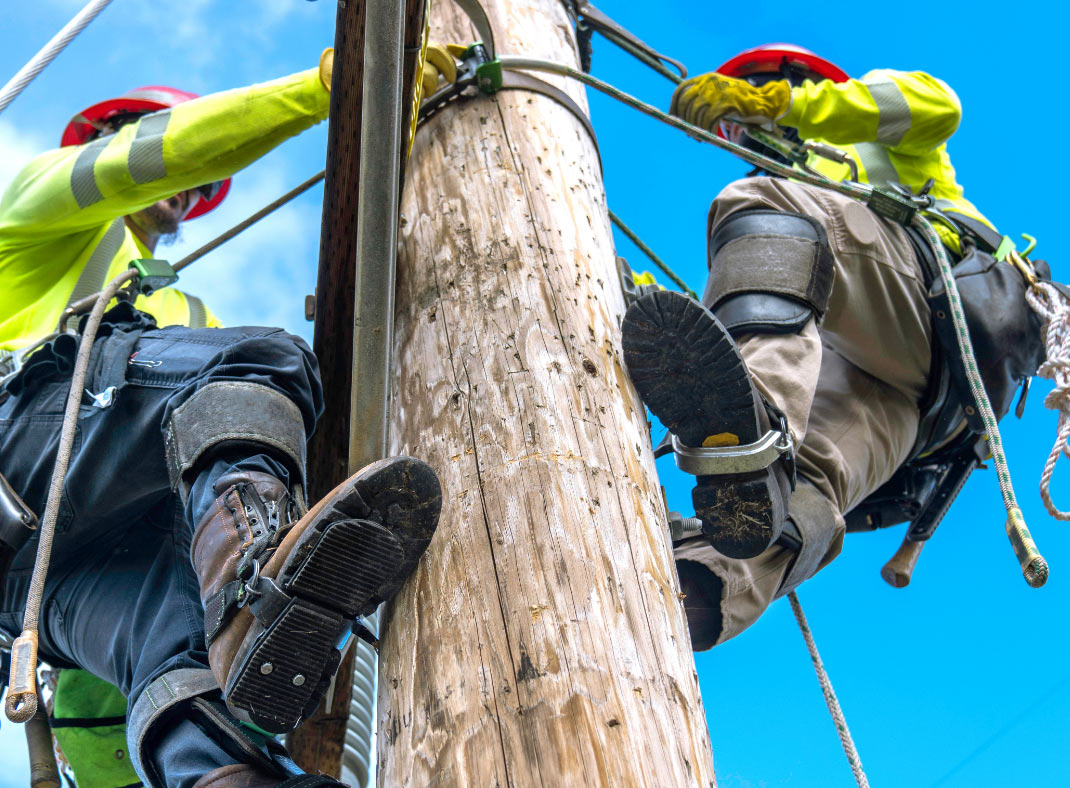TWS is a Great Training Option for Everyone
Learn more about how we can prepare you to advance your career.
Interested in becoming an electrical lineworker but wondering if a job will be waiting for you after graduation? The good news is that electrical lineworkers are in demand1, and Tulsa Welding School (TWS) offers career services to help you find opportunities as an apprentice lineworker after graduation. In just 3 ½ months, you can learn how to install, maintain, and repair electrical power lines. Plus, you will obtain the necessary certifications to work in the industry.
Are Electrical Lineworkers In Demand?
Employment is expected to grow for Electrical Power-Line Installers and Repairers (499051) in Texas by 24% through 20301. The reasons for the lineworker demand include the following:
Increase in Energy Demand
An increase in population in the Dallas-Fort Worth-Arlington Metro Areas a population growth of 8.64 percent2 through 2028 and the increase in energy demand means more electrical lineworkers are needed to build electric infrastructure to power the busy city.
Have You Considered a Career in the Skilled Trades?
Fill out the form to recieve a no obligation info packet.
Organized Unions
There are a few unions in Dallas that support electrical lineworkers and promote the opportunities that are available in the workforce. The IBEW Local 693 supports lineworkers in Dallas. The National Association of Journeyman Lineman (NAJL)4 is a national organization of journeyman lineworkers supporting the industry’s growth.
Is it Hard to Get a Job After Electrical Lineworker School?
It is always challenging to get a job, but TWS helps make it easier. With the increased demand for Electrical Lineworkers in Texas1, jobs are available for graduates of the Tulsa Welding School’s Electrical Lineworker program. After graduation, TWS helps you find an apprenticeship to start working in the industry and work toward your contractor’s license.
Why Become an Electrical Lineworker?
There are many reasons why people become electrical lineworkers. They include:
Working Outdoors
Electrical lineworkers work most of their shift in the field. They install, maintain, and repair power lines. To do this, they climb utility poles and perform their job up in the air in work-ready bucket trucks. If you enjoy working out of the office with your hands, consider becoming an electrical lineworker.
Operate Equipment & Machinery
Another part of the job of an electrical lineworker is operating and maintaining heavy machinery. They use cross arms, insulators, conductors, crimp tools, cutters, gaff gauges, lineman pliers, adjustable wrenches, hammers, screwdrivers, telescopic sticks, single-phase transformers, bolt cutters, shovels, and many other electrical lineworker equipment and machinery.
Physical and Mental Strength
Working as an electrical lineworker takes strength and stamina to haul gear, pull thick cables and wires, and climb utility poles. It also takes mental strength to focus on safety for yourself and those around you. Safety first.
Want to Learn More?
Because becoming a lineworker is a hands-on job, technical training is typically required for anyone to enter this field. Many people invest in a trade program to learn the trade skills they need to be safe and effective as professionals. Students will be able to qualify for OSHA-10 certification upon completing this program and receiving a Diploma.
To learn more about our Electrical Lineworker program at the Dallas Metro campus, contact us at Tulsa Welding School or call (214) 227-9911.
- https://www.careeronestop.org– Employment is expected to grow for Electrical Power-Line Installers and Repairers (499051) in Texas by 24% through 2030
- https://dallas.culturemap.com/news/city-life/dfw-population-8-million-2028/
- https://www.linemancentral.com/unions/dallas
- https://www.nationaljourneymenlinemen.com/







